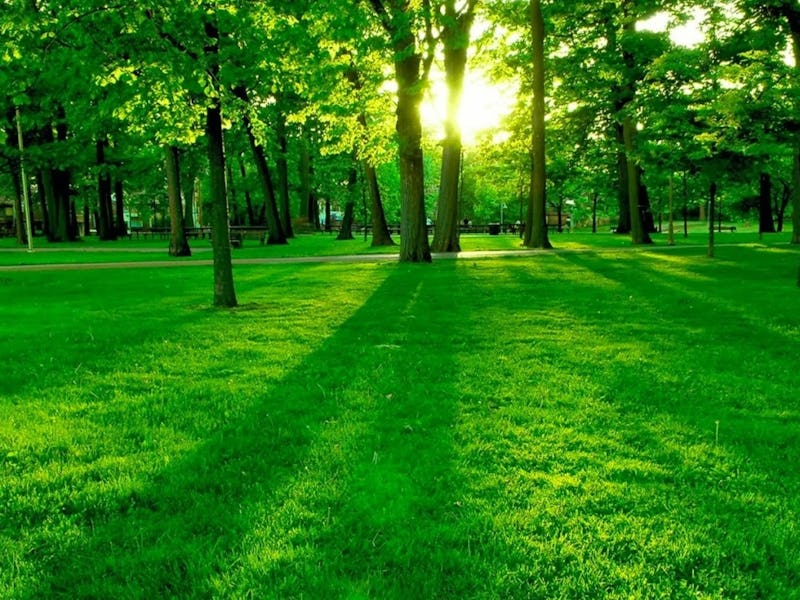Cambridge Launches Crowdsourcing App to Study Whether Nature Makes Us Happy
Sunny days just aren't the same in the city.

A team of Cambridge researchers are planning to test how access to natural landscapes, like parks, gardens, and the countryside, impact an individual’s happiness. The group released a smartphone app called NatureBuzz that allows users to submit data three times a day that combines information about their location, activities, and mood. While the test may be scientific in nature, it appears pretty much designed to prove that, yes, humans do like access to more than just concrete and fossil fuel fumes.
Nonetheless, the researchers are hoping that the app will provide the kind of massive data set that may yield surprising finds.
“Apps provide a great way of collecting data from thousands – possibly tens of thousands of users, a scale that is just not possible in lab experiments,” Laurie Parma, a research coordinator from the school’s Department of Psychology, said in a news release.
The study is also looking at how exposure to natural settings affects a person’s mood over time. Sure, city-dwellers may enjoy a walk in the woods, but does someone living in the country still benefit emotionally from access to all those trees, flowers, and little critters?
“We know that people quickly become familiar with – and immune to – happiness-inducing stimuli, and one potential way to combat this phenomenon is to provide new and varied stimuli,” said Andrew Balmford, Professor of Zoology at Cambridge.
The NatureBuzz app allows users to submit information on their activities to the research team.
The researchers are particularly interested in looking at how an area’s biodiversity impacts happiness. So they are not just studying whether your little neighborhood park or the flowers on the side of the road make you happy, but how the amount and variety of green spaces impacts your overall quality of life.
“Natural environments with greater biodiversity – different flowers, different birds, for example – present a rich variety of stimuli, so it’s possible they will keep the ‘happiness factor’ fresh for visitors,” said Balmford.
With happiness linked to wide-ranging social benefits, including reductions in crime and drug use, strong scientific evidence that green spaces improve quality of life could help make the case for city parks, gardens, and even outings to the countryside. The NatureBuzz iPhone and Android apps only work in the UK, but the study’s results may have an impact on whether American cities invest in improving access to parks and gardens for residents.
Assuming the researchers learn that we do prefer nature, it’s still an open question: How much nature is too much? Surely, cities have some advantages, otherwise what would be stopping us from all maximizing our happiness by living inside of a Nat Geo Wild documentary?